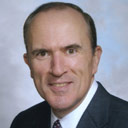Francis J Serbaroli
February 02, 2011 | New York Law Journal
Feds Taking Aim At In-House Lawyers, ExecutivesIn his Health Law column, Francis J. Serbaroli, a shareholder in Greenberg Traurig, discusses the federal government's recent efforts to hold corporate executives and in-house lawyers criminally responsible for corporate wrongdoing regardless of their involvement in or even knowledge of the wrongdoing. He reviews a case where the government not only successfully prosecuted the general counsel and two other executives of a drug company, but then took the further step of excluding them from Medicare and Medicaid for 12 years, thereby rendering them largely unemployable in the health care industry.
By Francis J. Serbaroli
12 minute read
March 22, 2002 | New York Law Journal
Health LawF or decades , the adjudication of medical malpractice cases has mostly been the province of state courts that apply state laws and measure the appropriateness of care and treatment according to generally accepted standards of medical practice in their communities. Similarly, the disciplining of medical professionals for substandard performance has been left to state licensing authorities. In recent years, tort lawyers have repeatedly sought to introduce medical malpractice cases into the federal courts thr
By Francis J. Serbaroli
12 minute read

March 23, 2010 | New York Law Journal
Health LawFrancis J. Serbaroli, a shareholder in Greenberg Traurig, reviews two recent federal court decisions where the IRS successfully held board members and executives of non-profit hospitals personally liable for misuse of withholding taxes that should have been remitted to the government.
By Francis J. Serbaroli
12 minute read

March 31, 2009 | New York Law Journal
Health LawFrancis J. Serbaroli, a shareholder in Greenberg Traurig, writes: It is important for every provider to understand that there is no such thing as an "informal" audit or a "routine" investigation. Any requests from or visits by auditors or investigators from any of the agencies or contractors mentioned earlier must be taken very seriously. They have the right to review documents and obtain information relevant to their inquiries, but the provider also has certain rights, and can and should take steps to protect itself.
By Francis J. Serbaroli
10 minute read

September 29, 2005 | New York Law Journal
Health LawFrancis J. Serbaroli, a partner at Cadwalader, Wickersham & Taft, reviews the recent class action suits and settlements between physicians and some of the nation's biggest health care plans, and advises unaffected insurers on how they can use parts of these settlements as models to avoid litigation.
By Francis J. Serbaroli
9 minute read

November 29, 2010 | New York Law Journal
Medicaid Recovery Audit Contractors Coming SoonIn his Health Law column, Francis J. Serbaroli, a shareholder in Greenberg Traurig, reviews the new federal requirement that all states contract with Recovery Audit Contractors (RACs) to recover Medicaid overpayments. These RACs are essentially private bounty-hunters that will be paid a contingency fee based upon how much they recover. He cautions that this new assault on Medicaid fraud points up the need for effective internal compliance programs.
By Francis J. Serbaroli
8 minute read
January 28, 2002 | New York Law Journal
Health LawS ome notable developments in recent months may have opened a window of opportunity for health care providers with fraud and abuse problems. Previous columns have described the federal government`s ongoing war on massive fraud in the health care industry. During the past 10 years, that war has resulted in billions of dollars in recoveries by the government from virtually every segment of the industry, including hospitals, nursing homes, clinical laboratories, drug companies and home health care providers.
By Francis J. Serbaroli
9 minute read
September 18, 2006 | New Jersey Law Journal
Background ChecksTracking problem physicians poses a continuing challenge, and no foolproof system has yet been developed.
By Francis J. Serbaroli
10 minute read

May 31, 2007 | New York Law Journal
Health LawFrancis J. Serbaroli, a partner at Cadwalader, Wickersham & Taft, reviews the availability and advisability of self-disclosure to federal government agencies when a provider has violated Medicare rules, stressing that before choosing to make a voluntary disclosure, the potential benefits must be weighed against the significant risks involved. Voluntary disclosure offers no guarantees.
By Francis J. Serbaroli
13 minute read

May 29, 2009 | New York Law Journal
Health LawFrancis J. Serbaroli, a shareholder in Greenberg Traurig, discusses some of the steps a health care provider should take to protect itself during an audit or investigation of Medicare and Medicaid payments. An inquiry by a government agency may be regarding an erroneous bill sent out over a single medical procedure that was inadvertently coded the wrong way, or it could be the first step in uncovering a pattern of improper billing, inaccurate cost reports, or illegal activities, so the provider should take any requests seriously. There is no such thing as an "informal" audit or a "routine" investigation.
By Francis J. Serbaroli
12 minute read
Trending Stories
- 1Tensions Ripple Through Partnerships As Law Firm Culture Shifts to Bottom Line Focus
- 2Four Law Firm Mergers That Could Make Sense
- 3Associates Say the Darnedest Things: 2024 Edition
- 4The 2024 Midlevel Associates Survey: The Rankings
- 5Did Johnson & Johnson's Proposed $8B Talc Bankruptcy Plan Just Jump to $9.1B?
More from ALM
- Morgan & Morgan Class Action Attorneys Detail Pathway to Success Within Cybersecurity and Data Privacy Practice 1 minute read
- Holwell Shuster & Goldberg Partners Leverage 'Hostile' Witnesses to Secure $101 Million Verdict Against Walmart 1 minute read
- Legal Speak at General Counsel Conference Midwest 2024: Mike Andolina, Partner, White & Case 1 minute read



